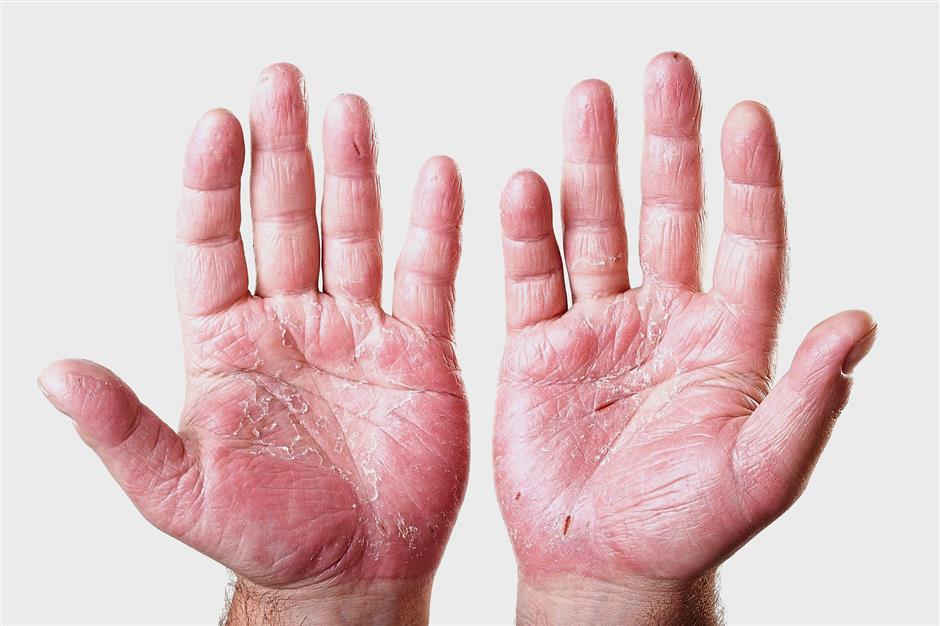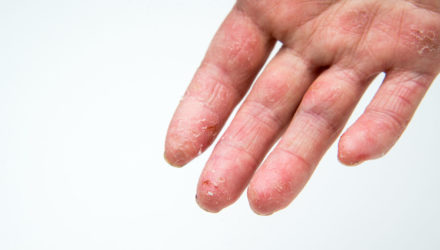Learn how to cure atopic dermatitis with self-care measures. This chronic skin condition can be very frustrating and stressful. You may find it difficult to sleep, or to even get out of bed, so treating it with self-care measures can be a great help. Your doctor can prescribe a treatment that can relieve your symptoms and prevent future flare-ups. Here are some tips that may help.
The most common type of eczema is atopic dermatitis. Severe eczema can cause weeping fluids and red skin patches. It can also lead to infections. While there is no single cause for atopic dermatitis, treatment must be customized to address the symptoms of the disease and improve the overall quality of life. It is important to find a doctor who understands your symptoms and can demonstrate appropriate treatment measures.
Atopylcholine is an effective treatment for atopic dermatitis, especially in the severe cases. An oral antibiotic can help fight bacteria, which are the main cause of skin infections. You should avoid scratching the affected area because this can bring additional bacteria to the area and cause an infection. In addition, you should breastfeed your baby, which will boost its immune system and help treat the condition.
If your doctor prescribes oral antibiotics, you can use it for up to a week. Antibiotics work by killing bacteria that cause infections, and they must be taken exactly as prescribed to have an effective effect. However, they do have some side effects, so it is not the best option for everyone. Atopic dermatitis can be aggravated by excessive stress, pollution, and even certain foods and beverages.
If you have chronic atopic dermatitis, you should consult a dermatologist immediately. Atopic dermatitis can affect the entire family. It can be difficult for a child to cope with the disease, so extra support from family members and friends is important. As a child grows older, your doctor should be able to give you advice about how to deal with the symptoms of atopic dermatitis.

If you are in the early stages, the best treatment is oral antibiotics. It will kill any bacteria responsible for the infection. Oral antibiotics should not be used without the doctor’s approval. They should be taken according to the doctor’s recommendations. If you have a history of atopic dermatitis, your healthcare provider will be able to recommend an appropriate course of treatment. But atopic dermatitis is difficult to treat because there is no cure for the condition.
Symptoms of atopic dermatitis may include dry, itchy skin and a rash on the face. Your doctor may prescribe topical creams and lotions. Atopic dermatitis may be a symptom of another disease, such as a bacterial infection. You should not scratch the affected area because scratching will bring in more bacteria. Taking an antibiotic will not solve your problem, but you must strictly follow your doctor’s instructions.
The most effective treatment for atopic dermatitis is to avoid triggers. Identify triggers that make your condition worse and avoid them. Infections caused by bacteria can cause rashes to flare up, so try to limit your exposure to these triggers. You can also reduce the risk to your skin by using a moisturizer twice a day. It may even help prevent the onset of atopic dermatitis.
Topical medications are needed in the treatment of atopic dermatitis. Regular use of a moisturizer can reduce symptoms and reduce the need for topical prescription drugs. You should choose a moisturizer that is dye-free, oil-based, and thick. Stay away from lotions as they can dry out your skin. The health website https://www.sga.co.th/ says that the best solution is a lotion with moisturizers that help the skin get rid of dead cells and reduce itching.
Treatment of atopic dermatitis with topical corticosteroids is an excellent option for mild to moderate cases. However, it is important to consult a dermatologist for more advanced treatments. During treatment, the doctor will prescribe local medications and may recommend an allergy test. The choice of medication depends on your diagnosis and the severity of the condition. It is important to avoid medications that can make your condition worse.
